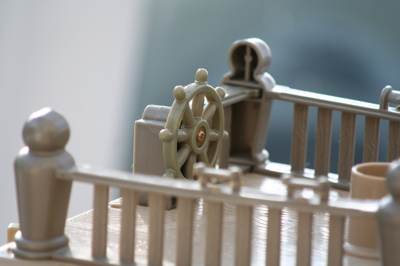Wikipedia – A Means not an End
 It was one of Seth Godin’s posts that kicked this thought chain off. I’m a regular follower of his blog, and normally I nod sagely at his wisdom, but for once I’m shaking my head furiously. Why? Because of the wikipedia gap. I’m thinking of it more as a chasm.
It was one of Seth Godin’s posts that kicked this thought chain off. I’m a regular follower of his blog, and normally I nod sagely at his wisdom, but for once I’m shaking my head furiously. Why? Because of the wikipedia gap. I’m thinking of it more as a chasm.
I have recently restarted academic studies and it has definitely been a shock to the system. The rigor and discipline required has reminded me quite how sloppy we are as a society when it comes to matters of knowledge and understanding. More simply put, we are rubbish at getting our facts straight and the writers we read are poor at acknowledging their sources.
One of the keys to effective leadership and successful living is summarised in this:”What’s the reality of the situation?” Start with this question, and work from there. It is a simple question, but often a very hard one to answer, accurately. Understanding the reality of the situation means sifting facts from opinions, truths from assertions and understanding from misunderstanding (see Understanding the reality of the situation Part I and Part II).
This is where I have a problem with wikipedia. I have expertise in a few areas and I know that the information on those areas in wikipedia is inaccurate, if not just plain wrong. While the pages sometimes note that the information is unvalidated or contentious, unfortunately that doesn’t stop people taking it as fact. Remember, when it comes to your brain, just like a computer: garbage in, garbage out. Once your put junk in there, it is very hard to get it out. Why have I not edited these inaccuracies? Because I know enough to know that I don’t know enough to fix them properly. Don’t get me wrong, I really like wikipedia, it can be a great starting point, it just isn’t an authoritative source on its own.
Back to Seth’s post, I believe we should be teaching children basic philosophy and critical thinking – and some research at least agrees (see: “a little bit of philosophy makes you smart, apparently“). Information should be multi-sourced and children should be encouraged to explore different perspectives and assess the information. We should do the same as adults too. Check the sources – too often we hear the same misinformation from multiple places, little realizing that the same inaccurate facts are being parroted or dressed up in new clothes as new information. Misunderstanding reality, be it academic or misunderstanding ourselves, stands in the way of good leadership and living. Inaccurate information means inaccurate decisions. It is worth fighting to establish the truth in your life, sadly it doesn’t just jump off of a web page. What are your real goals? What is really happening around you? What untruths have, or are, holding you back?


Well said … Wikipedia can be an interesting source of information but it definitely should be verified if you are going to rely on it for serious purposes!
Verifying information on the web is a major intellectual challenge these days. The Open University is even teaching courses on this now!
[…] think the quote is from Charles Handy, but it came from wikipedia and I’ve said enough about wikipedia research already. The Adam Curtis BBC program ‘The Trap’ explored this well, if you have the […]
[…] entries emerge and evolve organically as people contribute to them. Wikipedia is a means not an end, and very useful if it is viewed as a work in progress. You can click on the “history” […]